Interview
Songkran: ‘The food at Thai New Year connects me to my ancestors’
13 Apr 2023
6m
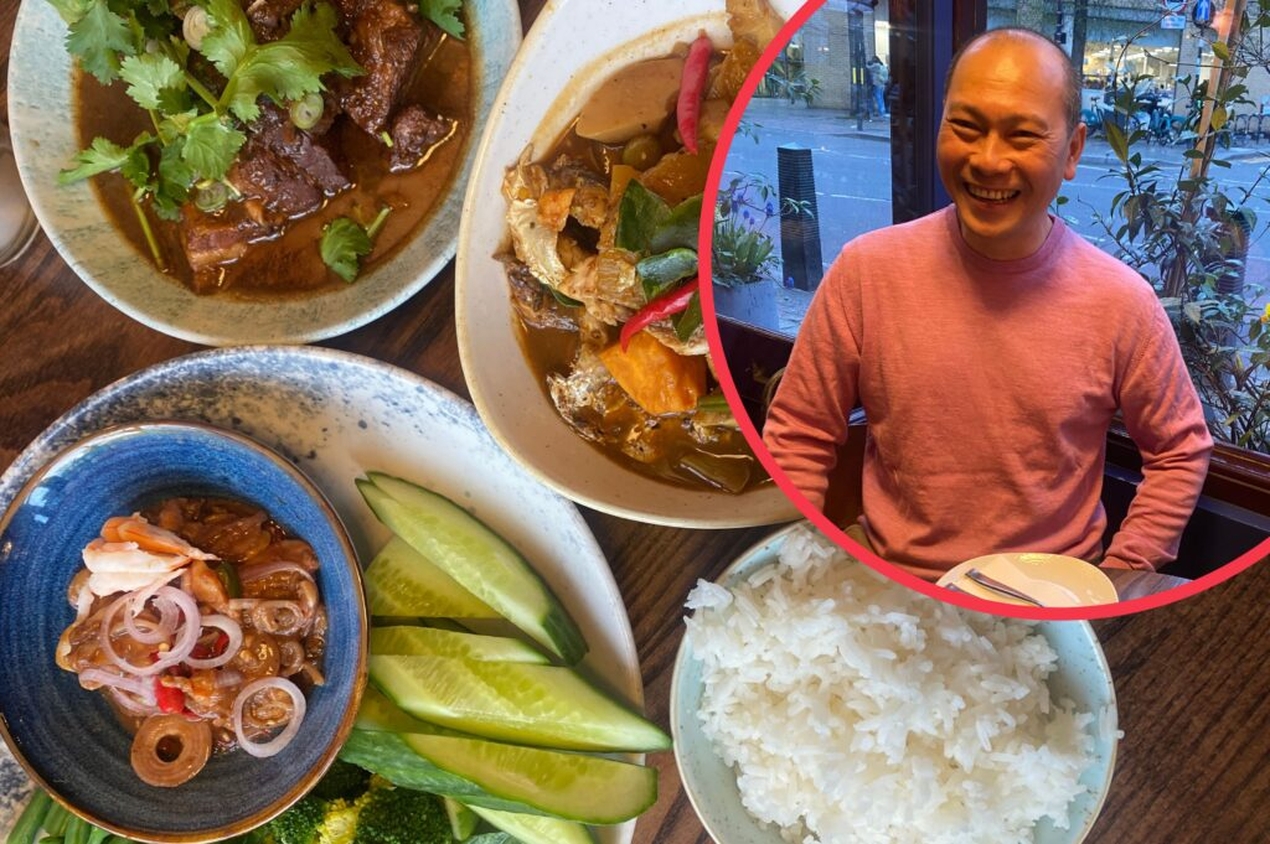
Songkran – or Thai New Year – is the biggest event in the country’s calendar.
Kicking off on April 13th each year, the Buddhist festival lasts anywhere from three to ten days depending where you live, and is traditionally marked with music, visits to the temple, and giant water fights.
But beyond getting drenched in water, those who celebrate will tell you there is another key part of the holiday that often doesn’t get enough airtime.
We are, of course, talking about the food.
Unlike other religious festivals, there aren’t specific dishes that are required to be cooked over Songkran – but therein lies the magic. Instead, Songkran food varies from household to household, and each meal cooked tells a story about the people behind it and where they come from.
Speaking to Twisted, Wichet Khongphoon – founder and chef at esteemed Thai restaurant Supawan in London – talks about his own Songkran food memories, and how the dishes his mother cooked have helped him stay connected to his southern Thai heritage.
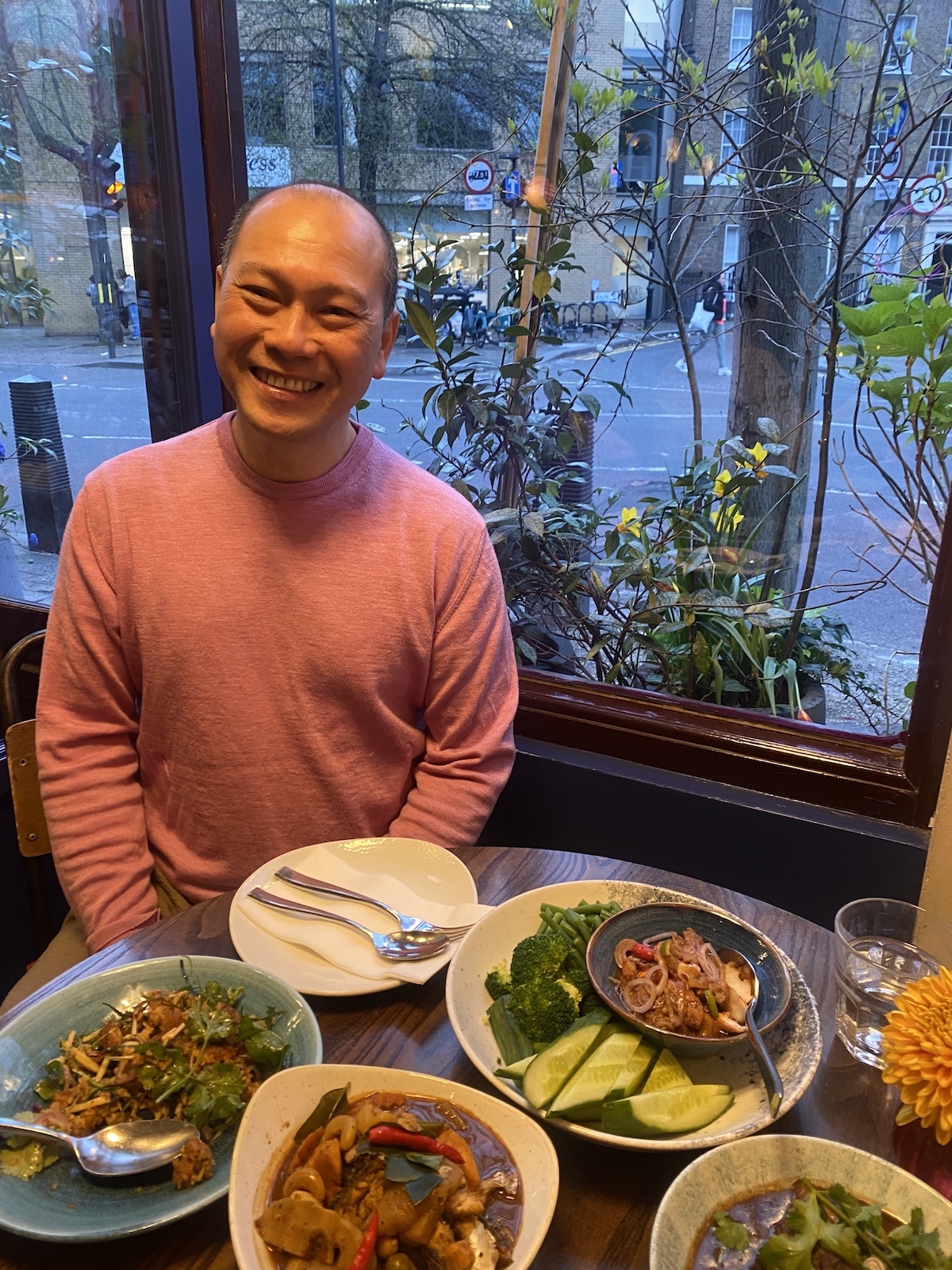
Wichet runs Supawan Thai Food in London (Credit: Twisted)
READ MORE: Hoppers founder Karan Gokani on London’s love affair with Sri Lankan food
Songkran food
“Even now, I have a really strong, direct connection with the food my mother cooked at Songkran,” says Wichet, who moved to London as a young adult, but originally grew up in Phuket.
“For me, the dishes are such an important part of my early life. I left Thailand 30 years ago but when I make or taste or smell them, they take me back.”
Traditionally, the main food event at Songkran is a meal taken to the temple, and offered as a tribute to the monks.
Often, there are tubs of curry as far as the eye can see, he says – bright colours and strong, comforting aromas that smack you in the face.
So deep would people’s attachment be to the food they’d brought that they’d be able to identify it when it was their turn to eat, and that’s after it was amalgamated with offerings from 100 other families.
“Every Thai family has [dishes] that go down the generations, and even if there are many of the same dish, they have their own particular way of preparing it, so it’s very sentimental,” he says.
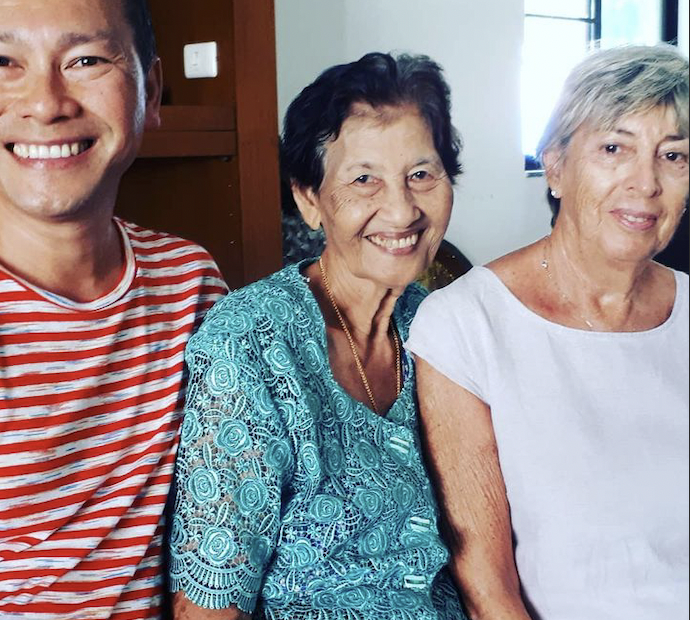
Wichet, his mother and his grandmother (Credit: Instagram/ Supawan Thai)
“It’s not only food to offer to the monks, but it’s a tribute for our deceased ancestors.
“Whether it’s a favourite dish that your grandfather or grandmother loved, you cook that in order to show your respect and to show that you still remember,” Wichet continues.
The chef recalls his mother starting the Songkran cooking process days ahead of time; slow cooking meat, making curry pastes, and ordering in special ingredients to mark the occasion.
Their kitchen was sparkling clean and everything was meticulously organised, but there was always a sense of urgency and anticipation in the morning in order to ensure everything was ready on time.
“Songkran food is spiritual,” Wichet reveals. “My mother always used to say you need to prepare it very well, and with good intentions, because it’s a way of connecting to your loved ones who have passed.”
Wichet’s Songkran food memories
So, what Songkran food did Wichet’s family eat?
“It would be different every year,” he says – but ultimately, it’s about the “people you love cooking the dishes you love.”
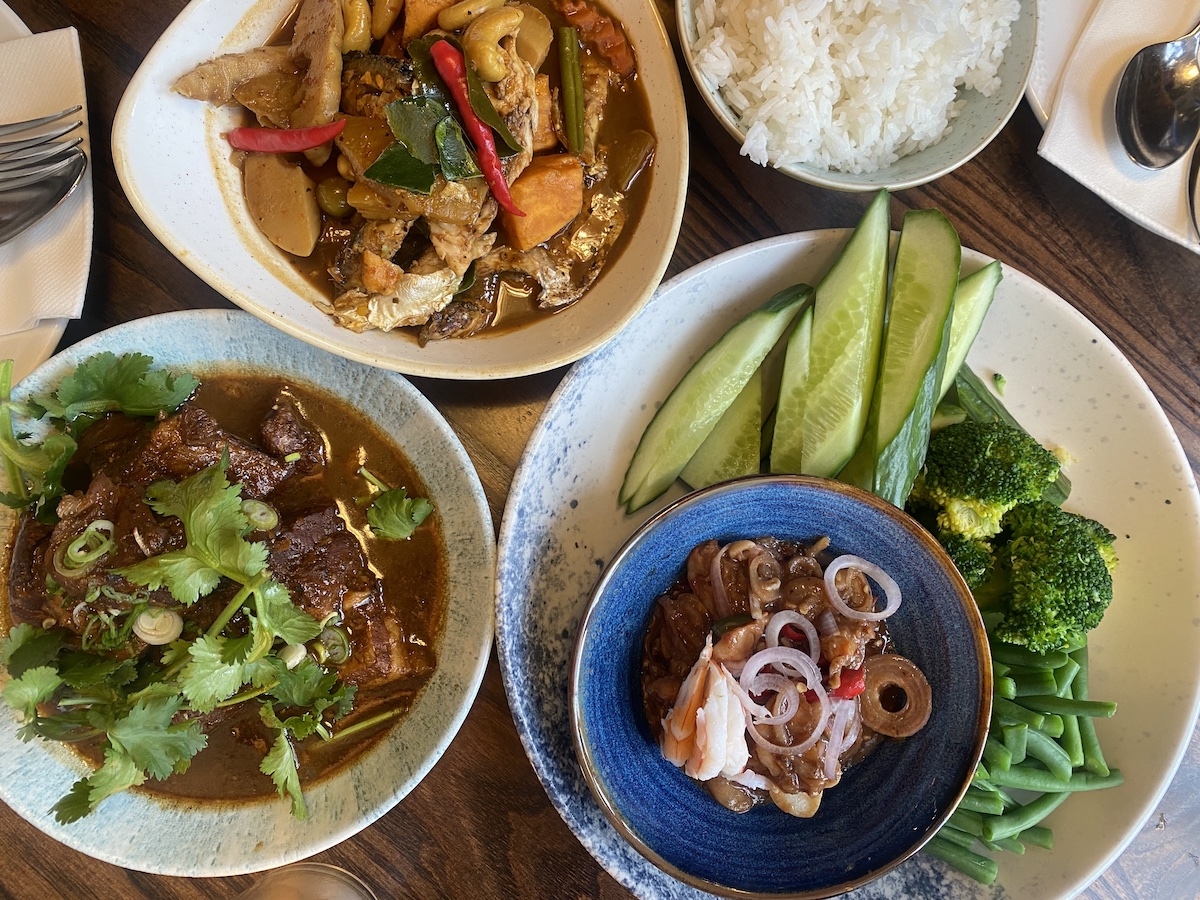
Wichet’s Songkran food is deeply sentimental (Credit: Twisted)
As is the case with many families across Thailand, the holiday was a time to shun casual food like Pad Thai and focus on more traditional, local dishes that his ancestors held particularly dear.
The list in his own home was pretty expansive – from Gaeng Som sour curry to turmeric fried fish – but the chef has narrowed down three dishes he ate at Songkran over the years that he feels encapsulate his family perfectly.
Gang Tai Pla
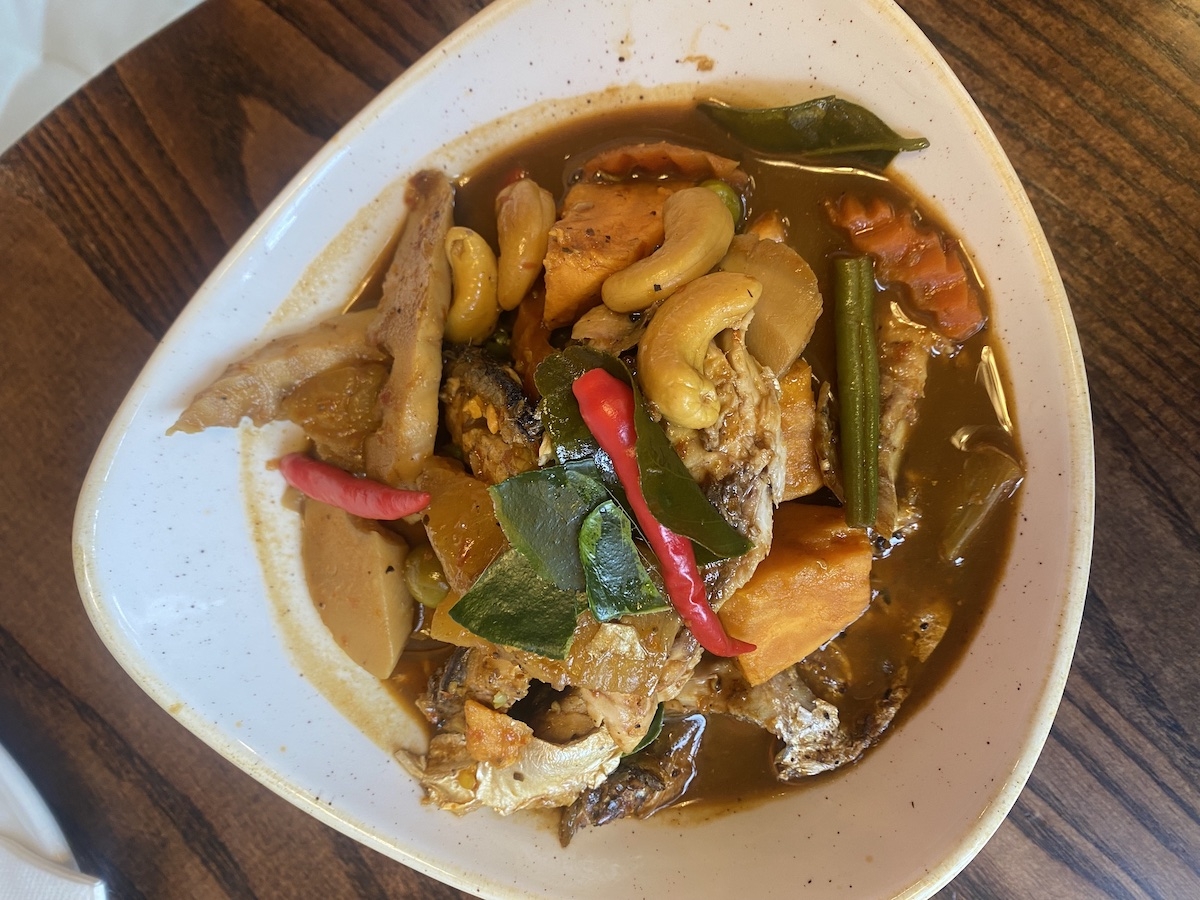
Gang Tai Pla is a popular southern Thai dish (Credit: Twisted)
READ MORE: Yotam Ottolenghi and Noor Murad on the dos and don’ts of fusion cookery
“Gang Tai Pla is a very old dish that is distinctively southern Thai. It’s warm, it’s very comforting, and it’s something I can associate with immediately,” the chef explains.
“My grandfather was a fisherman, and my family would often make this at Songkran [to remember him].
“One of the main parts of this dish is fermented fish. It’s the best way to use up all of the fish, especially the stomach. In the rainy season in Thailand you get a lot of fish, and back when my grandfather was alive, people didn’t have a lot, so they needed to preserve it.
“That’s why fermented fish was used a lot to flavour food, and it’s something we still do in the south today.
“To make it, you traditionally remove all of the stomach, clean it all and salt it for one or two years until it becomes sludgy, very pungent and fishy. It is then used [in the base] of the curry, and it is really strong, so you have to have a lot of herbs in there, for balance.
“My mum would boil the fermented fish first with kaffir lime, lemongrass, shallots and lots of aromatics.
“When you boil it – I can’t explain it – the smell just really hits you. You know what it is, even if your next-door neighbour cooks it. It’s a smell you can expect in southern Thailand over Songkran.
“This curry has a peppery red curry sauce and people use different fruit and vegetables. You can put young pineapple in there, tamarind pulp, aubergines and coconut milk, and there is sweet potato to absorb the saltiness.”
Naam Prik
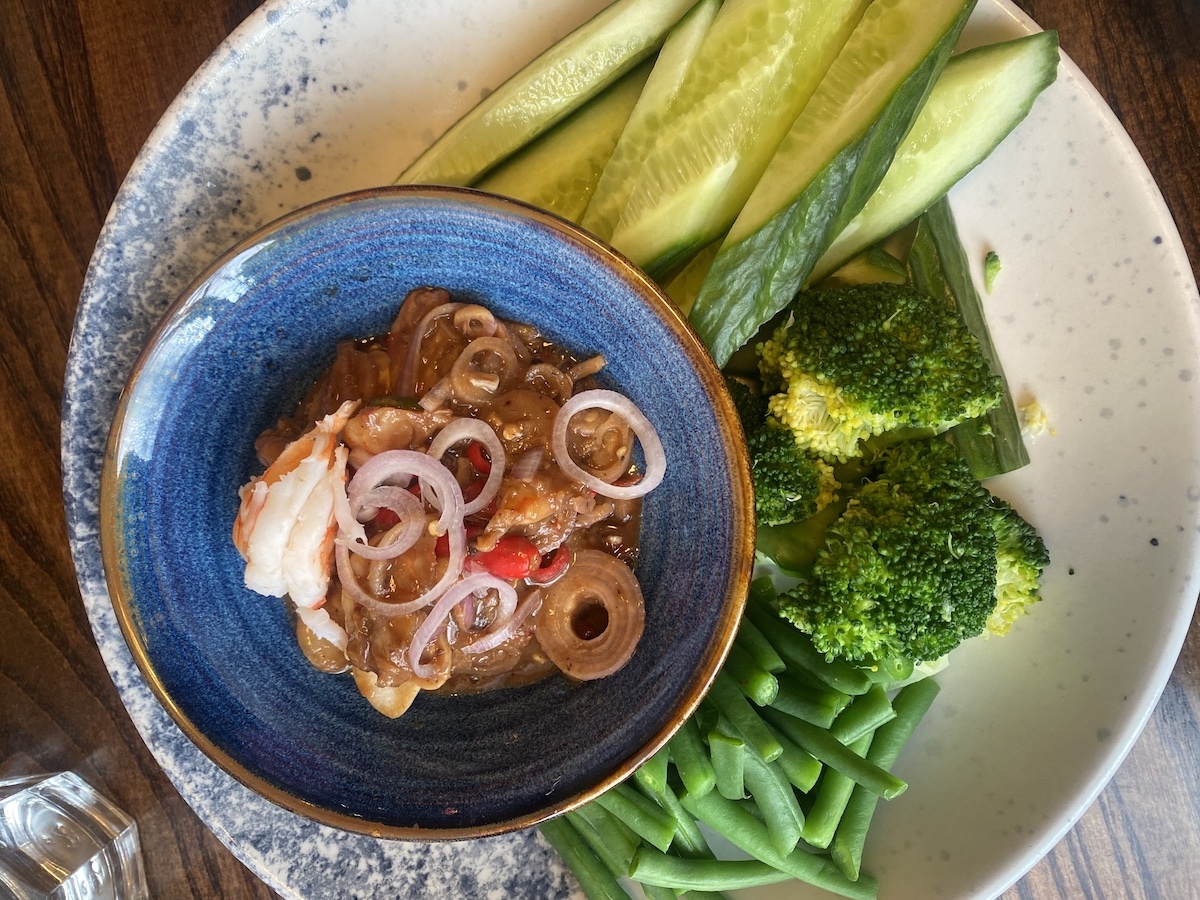
Naam Prik is also a local dish due to the seafood (Credit: Twisted)
“People use a lot of ingredients that are available locally to them, and it’s a time that [everyone] travels home from other parts of Thailand, so [there’s an emphasis on] regional cuisine at Songkran, which is really quite special,” Wichet says.
“This is another very southern dish. It’s like a relish – in Malaysia they would call it a shrimp sambal – and it’s an everyday dish we would have eaten and often prepared for Songkran.
“It has shrimp paste which is a very important part of southern cooking because we’re near the sea, so we have a lot of plankton.
“The shrimp is quite young and fresh, and you also have lime, garlic, shallots, chilli and prawns in there.
“To make it, you basically just mash it up together with lemon juice and sugar, so what you end up with is salty, spicy, sour and sweet.
“This is one of the easiest dishes to prepare. You can literally just turn it round in the kitchen [when you’re rushing] to get to the temple, but it uses those local ingredients and is something [your ancestors] would have enjoyed.
“You eat it with fresh vegetables and it’s the most delicious thing.”
Moo Hong

Moo Hong is a nod to Wichet’s Chinese heritage (Credit: Twisted)
READ MORE: Asma Khan on ditching the stereotype of the ‘angry male chef’
“This is a pork dish, and the flavour profiles are quite slow and gentle,” explains the restaurateur. “If you mixed it with the Gang Tai Pla (as we often did) they balanced each other out.
“Pork meat was quite a luxury in my village. We didn’t have supermarkets, so to buy it and cook it in a big quantity like this was preserved for a special occasion like Songkran.
“We used the fatty part of the pork and marinated it with coriander and black pepper and garlic, added soy sauce and palm sugar and spices like star anise and Chinese five spice and let it cook for hours.
“We would slow cook it ahead of Songkran and it also had a smell you can’t describe.
“My mum would make this dish for my dad, who is Chinese. It’s a fully Chinese dish [so it’s unique to our family at Songkran], but we’d add a Thai twist by putting a lot of black pepper in.
“Mum never had a recipe. I can’t explain it, but every time she cooked this dish it was precisely the same.
“Mine is very similar to my mum’s today and it takes me back home.”
You can visit Supawan in Kings Cross to try Wichet’s Songkran favourites for yourself.
.jpg_RVG9qi?tr=w-1024,cr-0.0.1024.676)
.png_2XIXGj?tr=w-1024,cr-0.0.1024.676)
.jpg_qa3BF9?tr=w-1024,cr-0.0.1024.676)